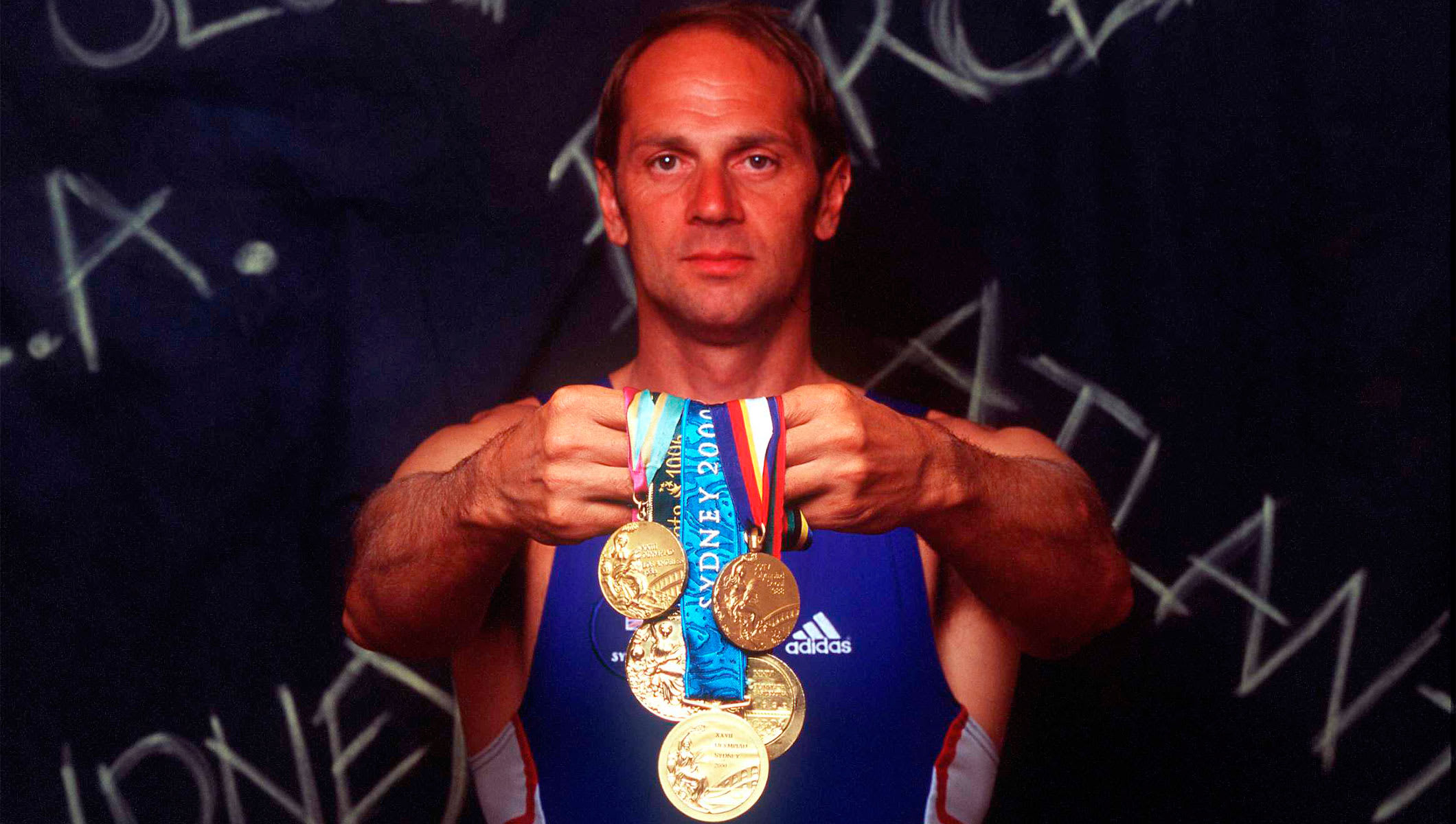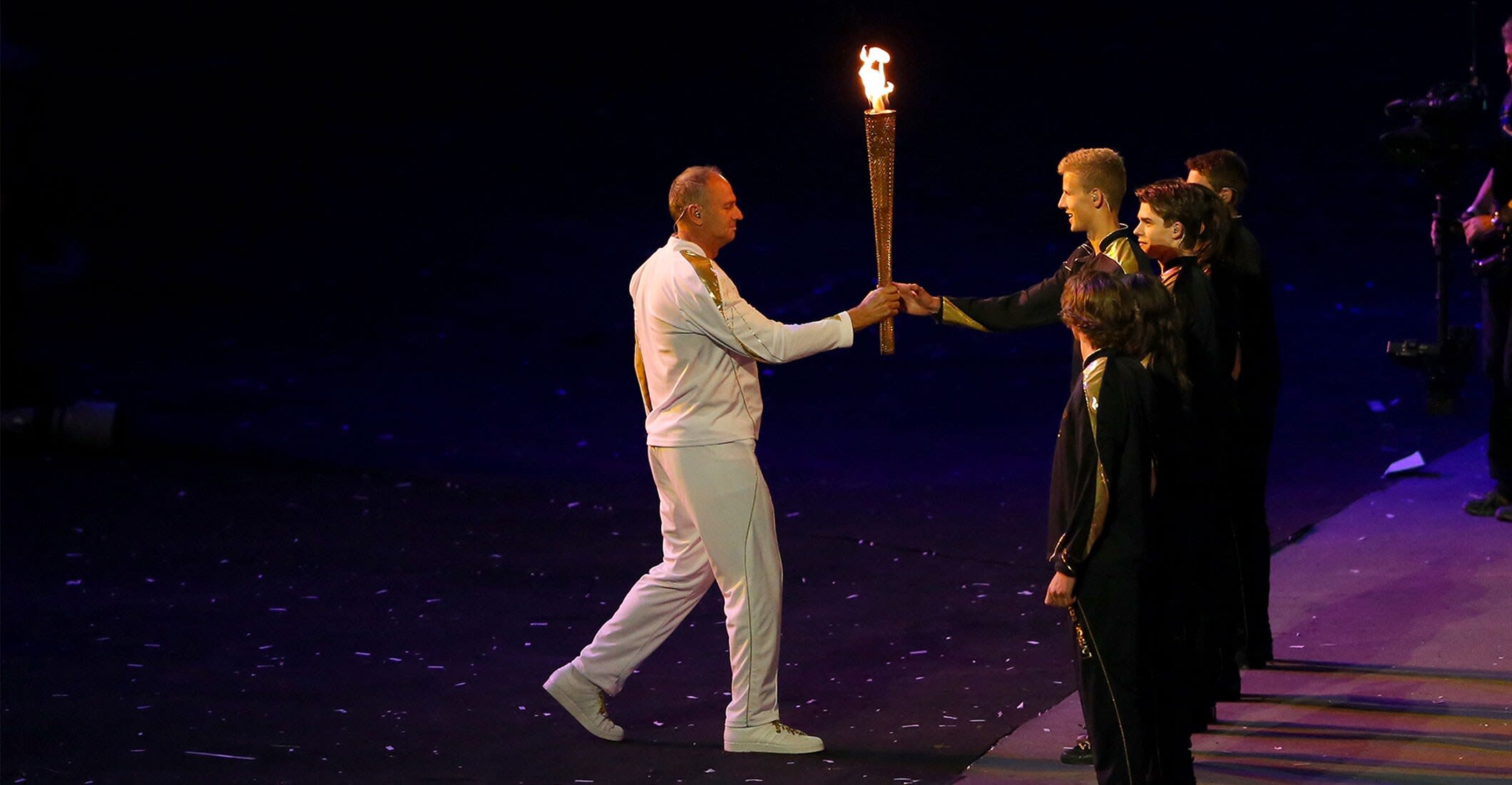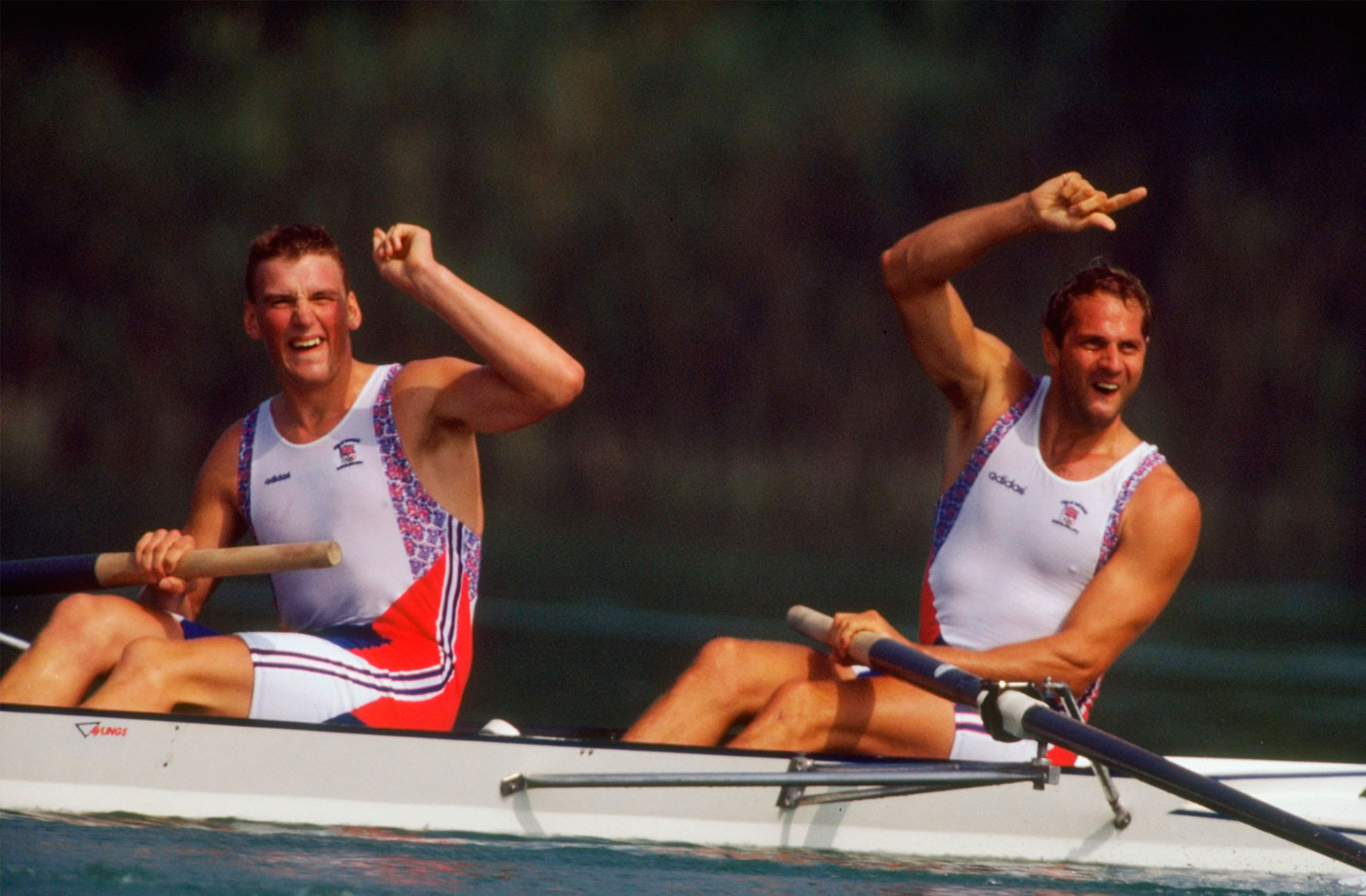Olympic values: Q&A with titanic rowing pair Redgrave & Pinsent
Great Britain’s Steve Redgrave and Matthew Pinsent won a mind-blowing nine Olympic gold medals between them, dominating rowing from Los Angeles in 1984 to Athens in 2004. Here, in the first of a new series featuring stars past and present analysing the enduring magic of the world’s greatest sporting spectacle, the titanic duo reveal how the Games have defined their lives.
Matthew Pinsent was an excitable, if hugely talented, teenager when asked to jump into a boat with the then already two-time Olympic rowing champion Steve Redgrave and see if there was a “fit”. There was.
The duo formed an extraordinary bond, winning coxless pairs gold at both Barcelona 1992 and Atlanta 1996 before claiming a third successive crown – a record-breaking fifth for Redgrave – four years later in the coxless fours at the Sydney 2000 Games.
Pinsent, who went on to win his fourth gold in Athens in 2004, unequivocally agrees with his sporting partner that the Olympic Games changed their lives for ever.
What is it that makes you most proud to be Olympians and multiple Olympic champions?
Steve Redgrave (SR): The Olympics are the biggest stage for rowing, and to perform your best results under the most extreme pressures is very satisfying.
Matthew Pinsent (MP): That is a big question. It changes your life, it changes everything. And that is difficult to unpick and work out why. I suppose it is the feeling of dedicating yourself over a long period of time to one thing which is far from certain when you actually get to do it. That’s the essence of it.
What was it that made you devote so much of your life to winning Olympic gold medals?
SR: Not being a professional athlete, I was fortunate enough to train full-time with my family and friends supporting me. What a lifestyle – to follow your dreams, doing something that I loved and being given that chance and opportunity. I couldn’t help but be devoted and determined with the support I had around me.
What does the term “Olympic values” mean to you?
SR: To most people in sport, the Olympic Games are the pinnacle. To me, the term “Olympic values” means integrity, honesty and fair play.

What are your first memories of the Olympic Games and what impact did they have on you as a child?
SR: When I was 10, I watched the 1972 Olympics with my dad and saw Mark Spitz win his seven gold medals, beating the world record in all seven races. It had a huge impact on me, and I thought then that it would be fantastic to be an Olympic champion.
MP: I was first aware of them in 1980, Moscow. In terms of wanting to do them, it might have been 1984 but certainly 1988. In 1988 I definitely watched the rowing and thought “I want to do that”.
Who was your sporting role model growing up, and why?
SR: As most kids followed football, I wanted to be a goalkeeper. Peter Bonetti from Chelsea was my hero. He was a flamboyant character. I was fortunate enough to meet him in the last few years and he is a nice man as well. When I found the sport of rowing, Pertti Karppinen, (Finland’s) three-time Olympic champion, was my hero. He was always able to raise his game at the Olympics.
In your view, what has been the best change made to the Olympic Games since you first competed?
SR: I’m very much a traditionalist. I’m happy to move with the times but I feel it is important to resonate with Pierre, Baron de Coubertin’s ideals of bringing the youth together and at the same time being able to innovate and keep Olympic ideology alive and fresh.
If you could change one thing about the Olympic Games, what would it be?
SR: One, make the Olympic sports more accessible to more countries. Two, have a restriction on foreign coaches so the support teams come more from the national team, but of course (still) allowing expertise from more experienced countries to expand the knowledge and ability of that country. Some countries won’t resource coaches internally because they can then leave and apply their trade anywhere around the world. It’s a difficult balance, but it is important that countries train up their own coaches for the future.
What is your favourite Olympic moment of all time?
SR: Being part of the Olympic organising committee that brought the Olympics to London in 2012 and the impact it had on the whole country. That was a tremendously proud moment I will cherish.
MP: Oh, hard. London was pretty cool, seeing it come here. After spending 20 years of my life training for my own Games, to then see it within my lifetime come to the UK was great. That was pretty special, and it was such an amazing success.
What is your favourite piece of Olympic memorabilia?
SR: I’ve been fortunate enough to carry three Olympic torches – in Athens (2004), Beijing (2008) and London (2012). They are great pieces of history to have. I would love to have Olympic torches from the Games I competed at as an iconic symbol of the Olympics.

Who was your best and worst roommate during your five Games?
SR: Matthew Pinsent – best and worst. Best, because we had a brilliant rapport and similar outlook on life and enjoyed each other’s company. Worst, because he would read his book before going to sleep and had the light on keeping me awake. And then he’d eventually put his book down, turn his light off and be asleep snoring in seconds, leaving me awake.
MP: I only had Steve for three of them. So, I suppose he is the best. But then I shared with another guy in Athens and that seems very harsh to then have him as the worst.
